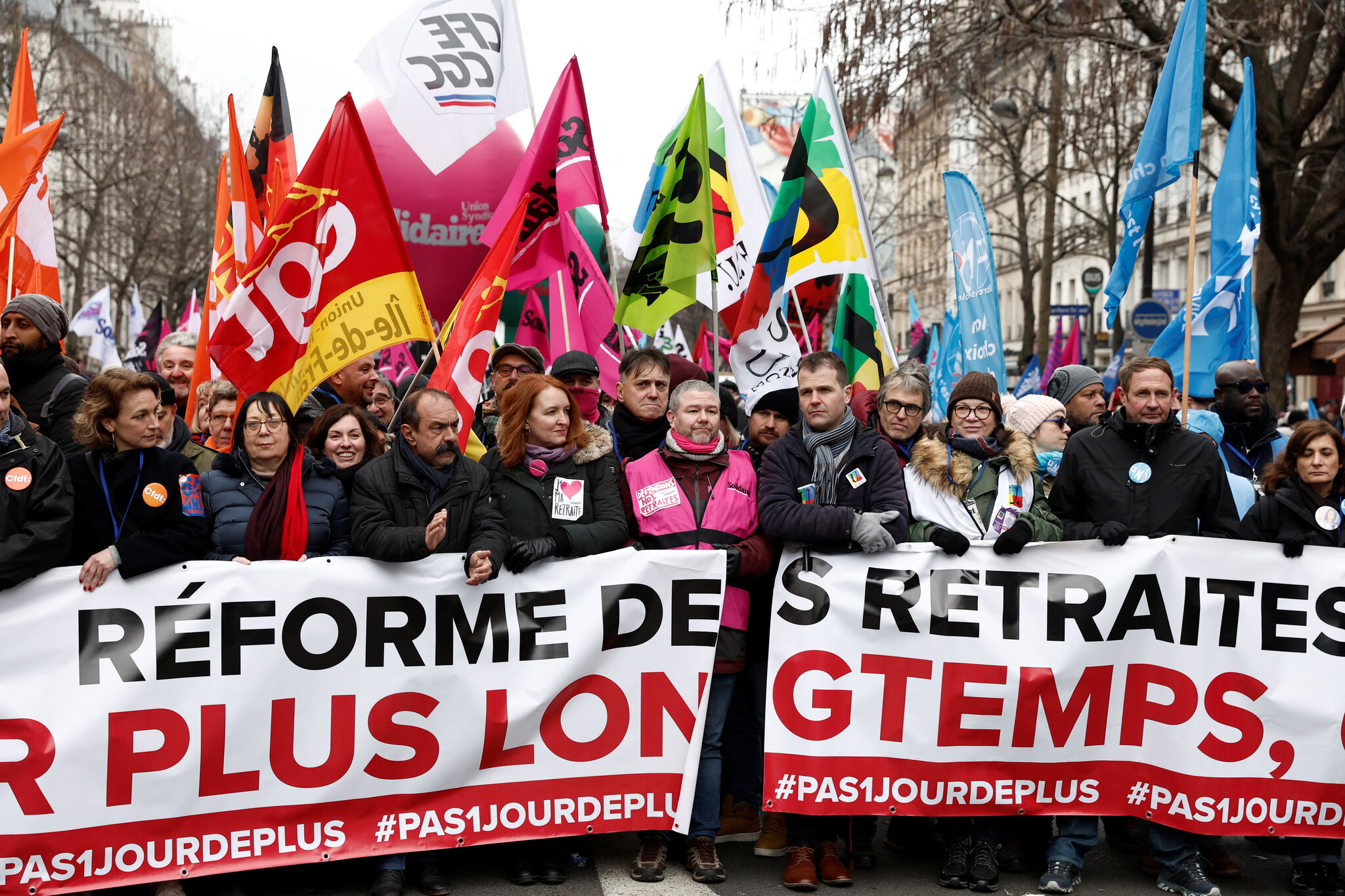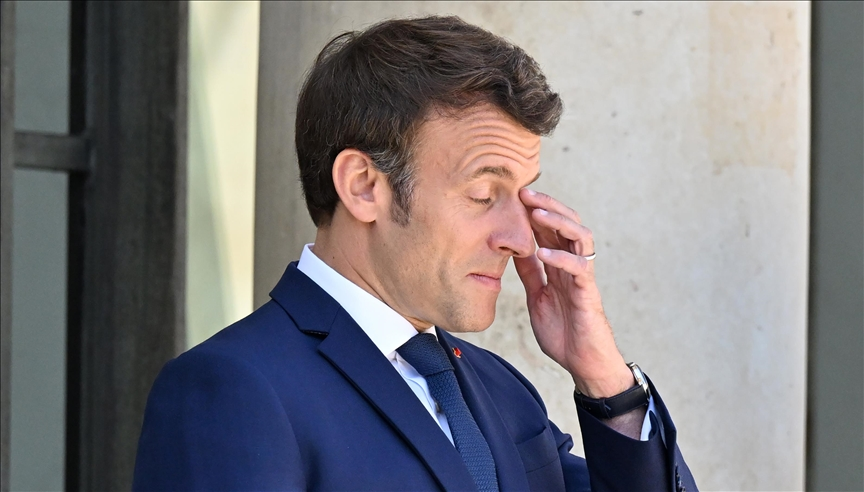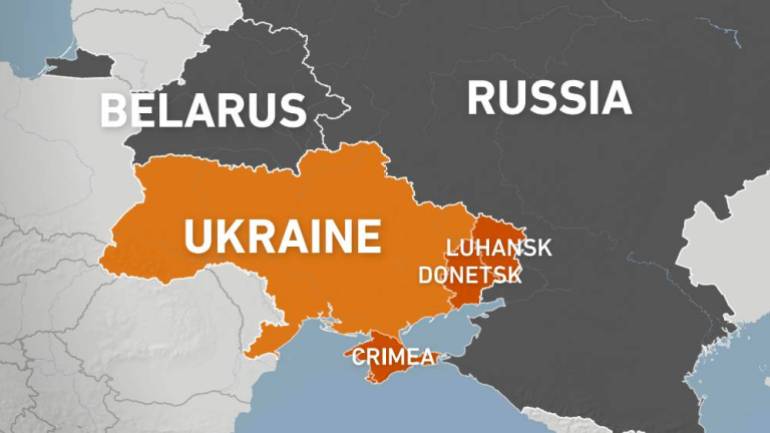Pension Strikes in France, UK Police Checks, New Zealand PM's resign, Netenyahu's Revoked Minister

Pension Strikes in France
Trade unions across France joined forces today in a mass mobilization trying to bring the country to a standstill. Their ultimate goal is to force President Emmanuel Macron to scrap his controversial plans to reform France's pension system, which notably includes increasing the retirement age from 62 to 64. France's eight main trade unions have united for the first time in 12 years in total, opposition to the plans, with support from left wing political parties. Sectors including transport, energy, oil, education, health and more have all been affected. Yesterday, the government said it was calm, determined and committed in the face of the strikes, while Macron reportedly denounced the lies and untruths of the left during a meeting with ministers. So what exactly is the French government trying to do? The headline of the plan is to increase the retirement age from 62 to 64 gradually by 2030. The plan would also raise the minimum number of years that a person will need to work in order to be entitled to a full state pension to 43. This would come into force from 2027.
The reforms would also end many so called special regimes with different retirement ages for professionals, including railway, electricity and gas workers. However, lower retirement ages would be maintained for certain other categories of workers, including police and firefighters whose jobs are deemed physically or mentally arduous enough. The government would also increase the guaranteed minimum pensions for low income workers to 85% of the net minimum wage. France's pension system had been described as convoluted and Byzantine, with some 42 separate regimes. Macron promised to reform and streamline this system when he was elected in 2017, but his first attempt was shelved in 2020 amid public opposition and later the COVID pandemic. In his re-election campaign last year, he once again pledged a system overhaul. The reforms unveiled over a week ago would bring France's retirement age a little closer to its European counterparts. The government says the changes would bring in an extra €17.7 billion in revenues by 2030 and are necessary to ensure the pension system is financially viable and boost the workforce participation of people in their early sixties.

Nevertheless, unions immediately announced their opposition and called for a day of national strikes against the unfair and unnecessary reforms. But it's not just the trade unions that oppose the plans. Recent polling suggests that some 68% of French people are against the government's proposals. Unions are hoping for a repeat of 1995, where prolonged disruptive strike action, backed with public support, forced the government of Jacques Chirac to scrap its proposed pension reforms. But to do so, they'll need to keep public opinion on their side, as well as facing a battle on the streets. Macron faces a battle in the National Assembly. Both extremes of France's political spectrum in the form of Jean-Luc Mélenchon, left wing alliance and Marine Le Pen's far right national rally oppose the plans. As an added difficulty, Macron's alliance lost its parliamentary majority in the June elections last year. So we'll need to secure the support of the centre right Republicans to pass the measures. If all else fails, he could resort to Article 49.3, a contentious constitutional measure that allows the government to bypass parliament. Whether Macron succeeds in reforming the pension system or fails like numerous of his predecessors, remains to be seen.
UK Police Checks
Earlier this year, the case of David Carrick hit headlines. A serving police officer with the Metropolitan Police since 2001, he pled guilty to 49 charges, including 24 of rape at the end of 2022. On Monday, he pled guilty to another four charges of rape. Since this story hit national headlines. The Metropolitan Police themselves have been under the microscope. It was revealed that they knew about at least nine incidents where he was accused of rape and violent assault. Despite this, he was still allowed to continue working. In fact, despite the police knowing this, he passed vetting checks. Therefore, this week, it was announced that all police forces in the UK will check all officers and staff against national databases to identify any misogynistic predators who may have slipped through the net. In addition to this, the Home Secretary has asked for the code of practice for police vetting to be made stricter and clearer.

New Zealand PM's resign
New Zealand's Prime Minister Jacinda Ardern, announced today that she would resign on February the seventh rather than seek re-election at the next general election, which is to be held on October the 14th. Ardern, who was first elected prime minister in 2017, aged 37, says she no longer has enough in the tank to lead. She said she'd spend time over the summer break, considering her future, hoping to find the energy and heart to go on. But she said, Unfortunately I haven't and I would be doing a disservice to New Zealand to continue. During her nearly six years in office, she oversaw the country's response to major events like the COVID pandemic, the Christchurch mosque shooting. And she also became the second elected world leader to give birth in office. Ardern described her years in office as the most fulfilling of her life, though leading through crises had been difficult. The Labour Party will elect a new leader on Sunday, and Ardern successor will have to lead the centre left party into the upcoming election, with polls suggesting they may have a difficult path ahead.
Netenyahu's Revoked Minister
Israel's Prime Minister Benjamin Netanyahu has been dealt a blow after the country's Supreme Court voted 10 to 1 to revoke the appointment of one of his key allies as a senior minister in his government. Netanyahu had appointed RG Dairy, who is the leader of the ultra Orthodox Shah's party, to a number of ministries, including interior and health. But the Supreme Court said the appointment was extremely unreasonable given dairy's previous criminal convictions, including one of tax fraud last year. The decision is likely to escalate the clash between the new government and the justice system and will likely prompt Netanyahu to accelerate his controversial plans to weaken the judiciary. Dairy's sharp party called the decision arbitrary, unprecedented political and tainted. At time of writing, Dairy had made clear that he would not resign and would only go if fired by Netanyahu. If Netanyahu refuses to follow the court's order to fire him, then it would set up a further constitutional crisis.









Comments